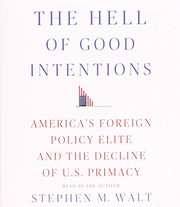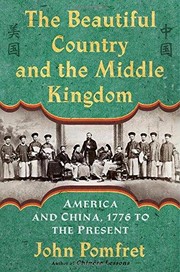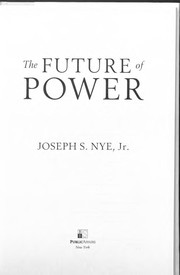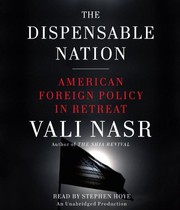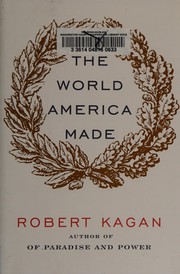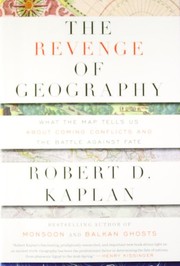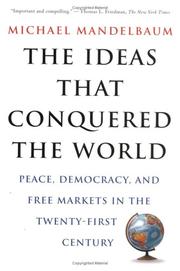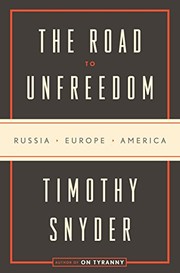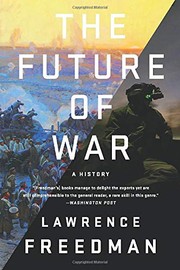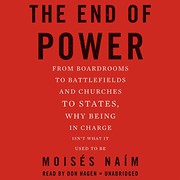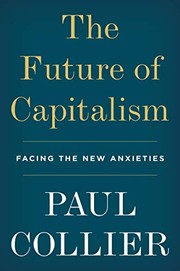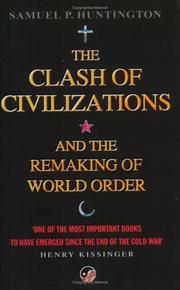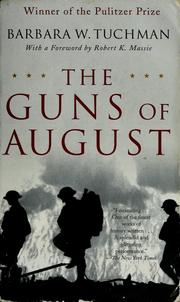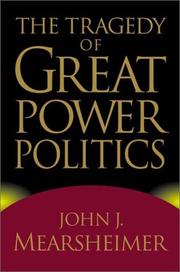Are you a student of international relations, a political science enthusiast, or simply interested in understanding the complexities of global affairs? Look no further! We’ve curated a list of the 20 best books about foreign policy that will broaden your perspective and deepen your understanding of international relations. Whether you’re seeking a comprehensive overview or a deep dive into specific regions or historical events, these foreign policy books are sure to provide valuable insights and thought-provoking analysis.
Contents
- 1 20 Best Books About Foreign Policy
- 2 The Hell of Good Intentions: America’s Foreign Policy Elite and the Decline of U.S. Primacy
- 3 The Beautiful Country and the Middle Kingdom: America and China, 1776 to the Present
- 4 The Future of Power
- 5 The Dispensable Nation: American Foreign Policy in Retreat
- 6 The World America Made
- 7 The Revenge of Geography: What the Map Tells Us About Coming Conflicts and the Battle Against Fate
- 8 The Ideas That Conquered the World: Peace, Democracy, and Free Markets in the Twenty-First Century
- 9 The Road to Unfreedom: Russia, Europe, America
- 10 The Future of War: A History
- 11 The Age of Illusions: How America Squandered Its Cold War Victory
- 12 The End of Power: From Boardrooms to Battlefields and Churches to States, Why Being In Charge Isn’t What It Used to Be
- 13 The Ideas Industry: How Pessimists, Partisans, and Plutocrats are Transforming the Marketplace of Ideas
- 14 The Great Delusion: Liberal Dreams and International Realities
- 15 The World in Disarray: American Foreign Policy and the Crisis of the Old Order
- 16 The Accidental Superpower: The Next Generation of American Preeminence and the Coming Global Disorder
- 17 The Future of Capitalism: Facing the New Anxieties
- 18 The Clash of Civilizations and the Remaking of World Order
- 19 Diplomacy
- 20 The Guns of August
- 21 The Tragedy of Great Power Politics
- 22 Conclusion
- 23
- 24 Discover the Best Macroeconomics Books in the 2024 Updated Edition
- 25 Unveiling the Best The Kennedy Assassination Books in this 2024 Update
- 26 Books about Pornography: 2024's Best Titles
20 Best Books About Foreign Policy
The Hell of Good Intentions: America’s Foreign Policy Elite and the Decline of U.S. Primacy
by Stephen M. Walt
The Hell of Good Intentions by Stephen M. Walt is a thought-provoking book on foreign policy that examines the role of America’s foreign policy elite in the decline of U.S. primacy. Walt argues that despite their good intentions, the foreign policy establishment has made a series of strategic blunders that have weakened America’s global position. Drawing on historical examples and contemporary events, the author offers a critical analysis of the foreign policy decisions that have led to costly and counterproductive outcomes. This book challenges readers to rethink their assumptions about America’s role in the world and the effectiveness of its foreign policy strategies. With its incisive critique and compelling arguments, The Hell of Good Intentions is a must-read for anyone interested in understanding the complexities of international relations and the challenges facing U.S. foreign policy.
The Beautiful Country and the Middle Kingdom: America and China, 1776 to the Present
by John Pomfret
The Beautiful Country and the Middle Kingdom: America and China, 1776 to the Present, written by John Pomfret, is a compelling book on foreign policy that delves into the complex and evolving relationship between the United States and China. Pomfret, a veteran journalist and former Beijing bureau chief for The Washington Post, provides a comprehensive overview of the historical, cultural, and political dynamics that have shaped the interactions between these two global powers. Through meticulous research and insightful analysis, Pomfret explores the key moments and personalities that have influenced the bilateral relationship, offering a nuanced understanding of the challenges and opportunities that have arisen over the centuries. The book is essential reading for anyone seeking a deeper understanding of the intricate web of interactions that define the foreign policy between the United States and China.
The Future of Power
by Joseph S. Nye Jr.
The Future of Power by Joseph S. Nye Jr. is a captivating book on foreign policy that explores the changing nature of power in the 21st century. Nye provides a thought-provoking analysis of how traditional forms of power, such as military might, are being challenged by newer sources of influence, such as economic interdependence and soft power. Through insightful case studies and engaging anecdotes, Nye argues that the future of global politics will be shaped by a complex interplay of different power dynamics, and that understanding these dynamics is crucial for navigating the challenges of an interconnected world. Whether you’re a student of international relations or simply curious about the forces shaping our world, this foreign policy book offers a compelling and accessible perspective on the evolving nature of power.
The Dispensable Nation: American Foreign Policy in Retreat
by Vali Nasr
The Dispensable Nation: American Foreign Policy in Retreat by Vali Nasr is a thought-provoking book on foreign policy that challenges conventional wisdom. Nasr, a renowned expert on Middle Eastern affairs, provides a compelling analysis of America’s role in the world and its declining influence on the global stage. He argues that the United States has become increasingly disengaged from international affairs, leading to a vacuum of power that has been filled by other countries and non-state actors. Nasr’s insightful and well-researched book about foreign policy raises important questions about the future of American diplomacy and the implications of its retreat from global leadership. Whether you are a scholar, a policymaker, or a concerned citizen, this foreign policy book is a must-read for anyone interested in understanding the complexities of international relations in the 21st century.
The World America Made
by Robert Kagan
The World America Made by Robert Kagan is a compelling book on foreign policy that explores the role of the United States in shaping the post-Cold War international order. Kagan argues that America’s leadership has been crucial in maintaining peace and stability around the world, and he warns against the dangers of retreating from this role. Drawing on historical examples and political analysis, Kagan provides a thought-provoking perspective on the impact of US power and the implications of its potential decline. This foreign policy book offers valuable insights into the complexities of international relations and the challenges facing America in the 21st century. It is a must-read for anyone interested in understanding the dynamics of global politics and the role of the United States on the world stage.
The Revenge of Geography: What the Map Tells Us About Coming Conflicts and the Battle Against Fate
by Robert D. Kaplan
The Revenge of Geography by Robert D. Kaplan is a compelling book on foreign policy that delves into the influence of geography on global politics. Kaplan argues that the physical features of the Earth, such as mountains, rivers, and climate, shape the destinies of nations and drive international conflicts. Through engaging prose and insightful analysis, Kaplan explores how geography has played a pivotal role in determining the rise and fall of empires, the struggles for power, and the potential for future conflicts. The book provides a thought-provoking perspective on the interplay between geography and human history, offering valuable insights for policymakers, scholars, and anyone interested in understanding the complexities of global politics. With its rich historical examples and thought-provoking ideas, The Revenge of Geography is a must-read for anyone seeking a deeper understanding of the forces at play in international relations.
The Ideas That Conquered the World: Peace, Democracy, and Free Markets in the Twenty-First Century
by Michael Mandelbaum
The Ideas That Conquered the World: Peace, Democracy, and Free Markets in the Twenty-First Century by Michael Mandelbaum is a thought-provoking book on international relations that examines how the ideas of peace, democracy, and free markets have shaped the modern world. Mandelbaum explores the impact of these ideas on global politics and economics, arguing that they have become the dominant forces driving international relations in the twenty-first century. Through insightful analysis and compelling storytelling, the author delves into the historical roots and contemporary relevance of these powerful concepts, offering a compelling perspective on the forces that have shaped our world. This book about foreign policy is essential reading for anyone seeking to understand the complex dynamics of the modern global landscape and the enduring influence of these ideas on the world stage.
The Road to Unfreedom: Russia, Europe, America
by Timothy Snyder
The Road to Unfreedom: Russia, Europe, America by Timothy Snyder is a compelling book on foreign policy that examines the political landscape of Russia, Europe, and America. Snyder delves into the rise of authoritarianism and the erosion of democratic values, offering a thought-provoking analysis of the forces shaping global politics. Through a historical lens, he explores the manipulation of information, the weaponization of language, and the impact of technology on political movements. The book offers a deep and insightful look at the interconnectedness of these three regions, shedding light on the ways in which foreign policy decisions in one country can reverberate across the world. With its engaging narrative and rigorous research, The Road to Unfreedom is a must-read for anyone interested in understanding the current state of global affairs.
The Future of War: A History
by Lawrence Freedman
The Future of War: A History by Lawrence Freedman is a captivating book on foreign policy that explores the evolution of warfare from ancient times to the modern era. Freedman delves into the complexities of conflict and examines how technological advancements, political ideologies, and societal changes have shaped the way wars are fought. Through meticulous research and insightful analysis, the author provides a comprehensive overview of the strategies and tactics employed by military forces throughout history, shedding light on the ever-changing nature of warfare. This thought-provoking book about foreign policy offers valuable insights into the dynamics of international relations and the challenges that nations face in an increasingly interconnected world. Whether you are a student of history, a military enthusiast, or simply interested in the intricacies of global politics, Freedman’s exploration of the foreign policy book is sure to leave a lasting impression.
The Age of Illusions: How America Squandered Its Cold War Victory
by Andrew J. Bacevich
The Age of Illusions: How America Squandered Its Cold War Victory by Andrew J. Bacevich is a thought-provoking book on foreign policy that delves into the post-Cold War era and the United States’ role in the world. Bacevich, a renowned historian and foreign policy expert, offers a critical analysis of America’s foreign policy decisions, arguing that the nation’s triumph in the Cold War led to a series of misguided actions and illusions of grandeur. He explores how the United States became entangled in endless wars, global military interventions, and economic turmoil, ultimately squandering the opportunities presented by the end of the Cold War. With meticulous research and incisive commentary, Bacevich challenges readers to reconsider America’s place in the world and the consequences of its foreign policy choices. This book about foreign policy provides a compelling narrative that will resonate with anyone interested in understanding the complexities of global politics.
The End of Power: From Boardrooms to Battlefields and Churches to States, Why Being In Charge Isn’t What It Used to Be
by Moisés Naím
The End of Power by Moisés Naím is a captivating exploration of the shifting dynamics of leadership and influence in today’s world. Naim, a renowned foreign policy expert, delves into the realms of politics, business, and religion to dissect the erosion of traditional power structures. Through compelling examples and insightful analysis, the book reveals the diminishing authority of once-dominant institutions and the rise of new, decentralized forms of power. Naim’s thought-provoking narrative challenges conventional notions of control and offers a fresh perspective on the complexities of contemporary global dynamics. Whether you are a policy wonk or simply curious about the evolving landscape of influence, The End of Power is a must-read that will leave you pondering the implications of this seismic shift in power dynamics.
The Ideas Industry: How Pessimists, Partisans, and Plutocrats are Transforming the Marketplace of Ideas
by Daniel W. Drezner
The Ideas Industry: How Pessimists, Partisans, and Plutocrats are Transforming the Marketplace of Ideas by Daniel W. Drezner is a thought-provoking book that delves into the changing landscape of the marketplace of ideas. Drezner, a renowned political commentator, offers a captivating analysis of how the realm of public discourse has been shaped by pessimists, partisans, and plutocrats. This book on foreign policy explores the influence of thought leaders, think tanks, and intellectuals in shaping public opinion and policy decisions. With a keen eye for detail and a knack for engaging storytelling, Drezner provides a fascinating insight into the power dynamics and the evolving nature of the ideas industry. Whether you’re a political enthusiast or simply curious about the forces at play in shaping our world, this foreign policy book is sure to offer a fresh perspective that will leave you pondering long after you’ve turned the last page.
The Great Delusion: Liberal Dreams and International Realities
by John J. Mearsheimer
The Great Delusion: Liberal Dreams and International Realities by John J. Mearsheimer is a thought-provoking book on foreign policy. Mearsheimer challenges the prevailing liberal ideology that has dominated international relations for decades, arguing that it is fundamentally flawed. He delves into the belief that liberal democracies can peacefully coexist and spread their values around the world, asserting that this notion is a delusion. Instead, he presents a realistic view of international relations, emphasizing the role of power and the inherent conflict among states. Mearsheimer’s analysis is both compelling and controversial, providing a critical perspective on the complexities of global politics. This foreign policy book is a must-read for anyone interested in understanding the real dynamics at play in the international arena.
The World in Disarray: American Foreign Policy and the Crisis of the Old Order
by Richard Haass
The World in Disarray, by Richard Haass, is a thought-provoking book on international relations that delves into the complexities of global politics. Haass, a seasoned diplomat and foreign policy expert, provides an insightful analysis of the current state of the world, examining the challenges and crises that have emerged in recent years. The book offers a comprehensive overview of the key issues shaping the international landscape, from the rise of non-state actors to the impact of technology on foreign affairs. Haass also offers valuable insights into the role of the United States in navigating these challenges, providing a compelling argument for a new approach to American foreign policy. The World in Disarray is a must-read for anyone interested in gaining a deeper understanding of the intricacies of global politics and the urgent need for a reevaluation of traditional approaches to diplomacy and international relations.
The Accidental Superpower: The Next Generation of American Preeminence and the Coming Global Disorder
by Peter Zeihan
The Accidental Superpower is a compelling book on foreign policy that explores the next generation of American preeminence and the potential for global disorder. Author Peter Zeihan takes readers on a fascinating journey through history, geography, and geopolitics to explain how the United States became a superpower by accident and how its unique geographic advantages have shaped its rise to dominance. Zeihan offers insightful analysis of the factors that have propelled America’s economic and military power, as well as the potential challenges that could arise as the global order shifts. This thought-provoking book about foreign policy presents a compelling argument for the importance of geography in shaping international relations and provides valuable insights into the future of global politics. With its engaging writing style and comprehensive research, The Accidental Superpower is a must-read for anyone interested in understanding the complexities of international affairs.
The Future of Capitalism: Facing the New Anxieties
by Paul Collier
The Future of Capitalism: Facing the New Anxieties by Paul Collier delves into the challenges facing modern capitalism and offers insightful solutions for addressing them. Collier, a renowned economist, examines the social and economic anxieties that have emerged in recent years and proposes a reformed approach to capitalism that prioritizes the well-being of society as a whole. This thought-provoking book addresses issues such as inequality, globalization, and technological advancements, providing a comprehensive analysis of their impact on the global economy. With his expertise in economics and public policy, Collier offers a compelling argument for a more inclusive and sustainable form of capitalism that addresses the concerns of the current era. Whether you’re interested in economics, social issues, or simply want to gain a deeper understanding of the challenges facing our world today, this book is a must-read.
The Clash of Civilizations and the Remaking of World Order
by Samuel P. Huntington
The Clash of Civilizations and the Remaking of World Order by Samuel P. Huntington is a groundbreaking book on foreign policy that challenges the traditional paradigm of international relations. Huntington argues that in the post-Cold War world, the primary source of conflict will not be ideological or economic, but cultural. He contends that the world is divided into distinct civilizations, each with its own set of values and beliefs, and that these cultural differences will be the driving force behind future global conflicts. This foreign policy book has sparked intense debate and controversy, and its insights continue to shape discussions on international relations and global politics. Huntington’s compelling analysis offers a new perspective on the complexities of the modern world and the potential for clashes between different cultures.
Diplomacy
by Henry Kissinger
Diplomacy by Henry Kissinger is a renowned book on foreign policy that offers an insightful exploration of the art of international relations. Kissinger, a former Secretary of State and National Security Advisor, draws from his extensive experience and expertise to provide a comprehensive analysis of the complexities and challenges of diplomacy. The book delves into the historical evolution of diplomacy and its impact on global affairs, offering valuable lessons and strategic insights for policymakers, scholars, and anyone interested in understanding the dynamics of international relations. With its engaging narrative and profound observations, Diplomacy is a must-read for anyone seeking a deeper understanding of the intricate world of diplomacy and statecraft.
The Guns of August
by Barbara W. Tuchman
The Guns of August by Barbara W. Tuchman is a captivating book about the brinkmanship of World War I. Tuchman expertly delves into the complex web of alliances, political maneuvering, and military strategies that led to the outbreak of the Great War. This Pulitzer Prize-winning book provides a detailed and insightful examination of the events leading up to the war, offering a gripping narrative that brings history to life. Tuchman’s meticulous research and engaging storytelling make this book a must-read for history enthusiasts and anyone interested in global diplomacy and international relations. Whether you’re a history buff or simply curious about the intricacies of global conflict, The Guns of August is a fascinating exploration of the power dynamics and diplomatic intricacies that shaped the world’s fate.
The Tragedy of Great Power Politics
by John J. Mearsheimer
The Tragedy of Great Power Politics by John J. Mearsheimer is a captivating book about foreign policy that offers a compelling analysis of international relations. Mearsheimer argues that the pursuit of power by great nations is the driving force behind global politics, leading to a constant struggle for dominance and security. He delves into the complexities of international power dynamics, emphasizing the inevitability of conflict and the tragic nature of great power competition. Through meticulous research and insightful commentary, Mearsheimer presents a thought-provoking perspective on the realities of global power struggles and their impact on world affairs. This foreign policy book is a must-read for anyone seeking a deeper understanding of the forces shaping the international landscape.
Conclusion
Exploring the complex and ever-changing world of international relations, these 20 books about Foreign Policy offer deep insights into global politics, diplomacy, and conflict resolution. From classic texts to contemporary analysis, these books provide a comprehensive understanding of the challenges and opportunities facing nations around the world. Whether you are a student, scholar, or simply interested in global affairs, these books are essential reading for anyone seeking to grasp the complexities of international relations.
Which Foreign Policy book is best?
The best book on Foreign Policy can vary with personal preference, but three widely recommended titles are:
- The Hell of Good Intentions: America’s Foreign Policy Elite and the Decline of U.S. Primacy by Stephen M. Walt,
- The Beautiful Country and the Middle Kingdom: America and China, 1776 to the Present by John Pomfret,
- The Future of Power by Joseph S. Nye Jr..
Each offers valuable insights and could be a great starting point.
What are the best books to learn about Foreign Policy?
For those looking to learn about Foreign Policy, there is a wealth of literature that can provide a comprehensive understanding of the subject. Some of the most highly recommended books include:
- The Hell of Good Intentions: America’s Foreign Policy Elite and the Decline of U.S. Primacy by Stephen M. Walt,
- The Beautiful Country and the Middle Kingdom: America and China, 1776 to the Present by John Pomfret,
- The Future of Power by Joseph S. Nye Jr.,
- The Dispensable Nation: American Foreign Policy in Retreat by Vali Nasr,
- The World America Made by Robert Kagan,
- The Revenge of Geography: What the Map Tells Us About Coming Conflicts and the Battle Against Fate by Robert D. Kaplan,
- The Ideas That Conquered the World: Peace, Democracy, and Free Markets in the Twenty-First Century by Michael Mandelbaum,
- The Road to Unfreedom: Russia, Europe, America by Timothy Snyder,
- The Future of War: A History by Lawrence Freedman,
- The Age of Illusions: How America Squandered Its Cold War Victory by Andrew J. Bacevich
These books offer a range of perspectives on Foreign Policy, covering various aspects and approaches to the subject.
What are the best books on Foreign Policy?
The best books on Foreign Policy include:
- The Hell of Good Intentions: America’s Foreign Policy Elite and the Decline of U.S. Primacy by Stephen M. Walt,
- The Beautiful Country and the Middle Kingdom: America and China, 1776 to the Present by John Pomfret,
- The End of Power: From Boardrooms to Battlefields and Churches to States, Why Being In Charge Isn’t What It Used to Be by Moisés Naím,
- The Ideas Industry: How Pessimists, Partisans, and Plutocrats are Transforming the Marketplace of Ideas by Daniel W. Drezner,
- The Road to Unfreedom: Russia, Europe, America by Timothy Snyder,
- The Revenge of Geography: What the Map Tells Us About Coming Conflicts and the Battle Against Fate by Robert D. Kaplan.
Each offers unique insights into the subject. While these books on the topic of Foreign Policy are highly regarded, it’s important to note that any list of ‘best’ books is subjective and reflects a range of opinions.
What are the best Foreign Policy books of all time?
Choosing the best Foreign Policy books of all time can vary depending on who you ask, but seven titles that are often celebrated include
- The Hell of Good Intentions: America’s Foreign Policy Elite and the Decline of U.S. Primacy by Stephen M. Walt,
- The Beautiful Country and the Middle Kingdom: America and China, 1776 to the Present by John Pomfret,
- The World America Made by Robert Kagan,
- The Road to Unfreedom: Russia, Europe, America by Timothy Snyder,
- The Age of Illusions: How America Squandered Its Cold War Victory by Andrew J. Bacevich,
- The Ideas Industry: How Pessimists, Partisans, and Plutocrats are Transforming the Marketplace of Ideas by Daniel W. Drezner,
- and The End of Power: From Boardrooms to Battlefields and Churches to States, Why Being In Charge Isn’t What It Used to Be by Moisés Naím.
Each of these books has made a significant impact in the field of Foreign Policy and continues to be influential today.

